|
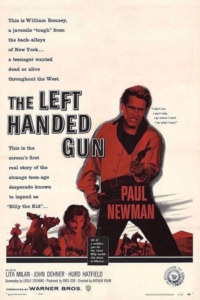
Synopsis:
When his new employer (Colin Keith-Johnston) is gunned down, Billy the Kid (Paul Newman) vows revenge against the men who killed him — but he alienates his mentor, Pat Garrett (John Dehner), when his vengeance disrupts Garrett’s wedding.
|
|
Genres, Themes, Actors, and Directors:
- Arthur Penn Films
- Hurd Hatfield Films
- Outlaws
- Paul Newman Films
- Revenge
- Westerns
Response to Peary’s Review:
Adapted from Gore Vidal’s TV play “The Death of Billy the Kid”, this feature film debut by Arthur Penn blends “myth-legend and history” by creatively interpreting Billy the Kid’s ascendancy to bad-boy culthood as “a modern-day psychological examination of a troubled youth”. Indeed, as Peary notes, despite being “set in the West”, Left-Handed Gun actually “fits in with fifties juvenile delinquent pictures” given that it deals “with a rebel outcast who is in conflict with society”. It’s notable for Penn’s “audacious camera work”, which effectively broke with traditional Western conventions and paved the way for a new wave of “anti-Westerns”, directly inspiring “Sam Peckinpah, Marlon Brando (in One-Eyed Jacks), and other western directors”. Unfortunately, “Newman’s heavy-handed Method acting” contributes to “the film seeming dated”, and the screenplay (featuring an obligatory love interest for Billy, played by Lita Milan) is far too stagy and contrived for its own good. Most film fanatics will likely be curious to check this film out once, given its historical relevance on several accounts, but Left-Handed Gun isn’t must-see viewing.
Note: As in Clint Eastwood’s Unforgiven (1992), …Gun explicitly features a character meant to show how a Western legend came into notoriety: in this case, Hurd Hatfield’s ‘Moutrie’, a “dime store novelist who adores Billy and wants to make him into a hero”.
Redeeming Qualities and Moments:
- John Dehner as Pat Garrett
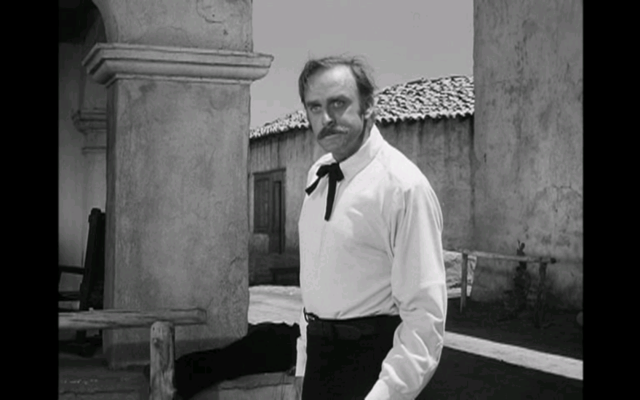
- Hurd Hatfield as the pulp novelist who immortalizes Billy

- Effective, innovative camera work
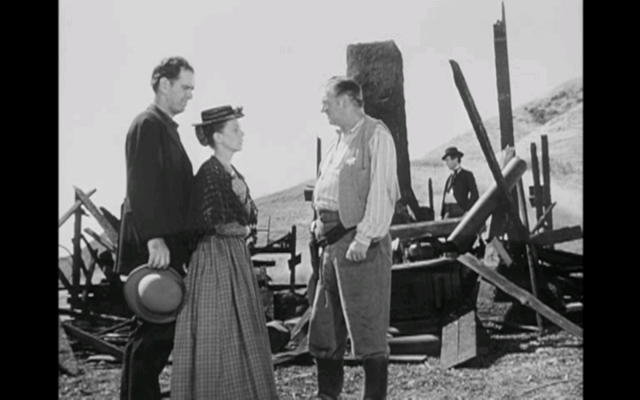
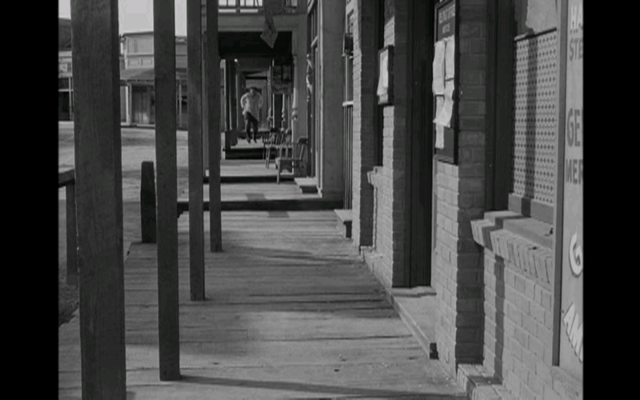 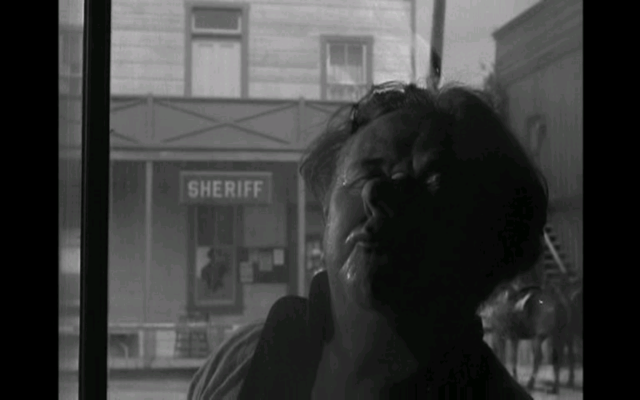
Must See?
No, though it remains of interest.
Links:
|






One thought on “Left Handed Gun, The (1958)”
Agreed, not a must. Not unwatchable but you may soon enough start feeling the time.
The most interesting part of the film comes early, as Billy quickly becomes friends with his new employer. There’s a tenderness to these scenes, as Billy seems to be finally finding someone he can really communicate with.
But, of course, the employer is then killed – and the rest of the film plays out as a vendetta/vigilante flick and we can pretty much see what’s coming before subsequent scenes begin.
If Penn’s early work with screen actors is detailed, it also leans toward indulgent. (Do we really need so much of the ‘buddies’ behavior between Newman and his sidekicks? And, yes, Newman appears to have been encouraged to ‘internalize’ a bit too much.) After working in tv for a number of years, Penn takes on film with a mixture of what’s admirable and what’s somewhat over-baked.
He would actually continue along similar lines until ‘Bonnie and Clyde’, when he got it right.